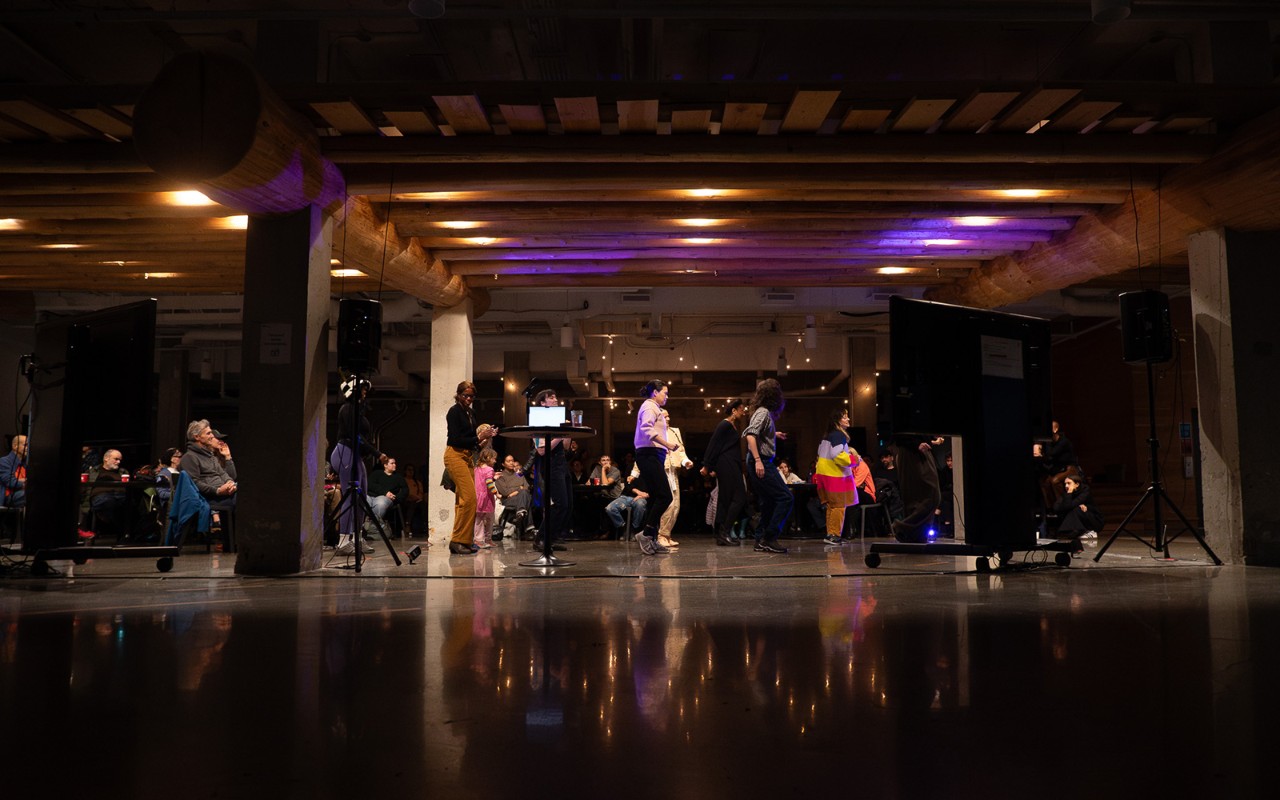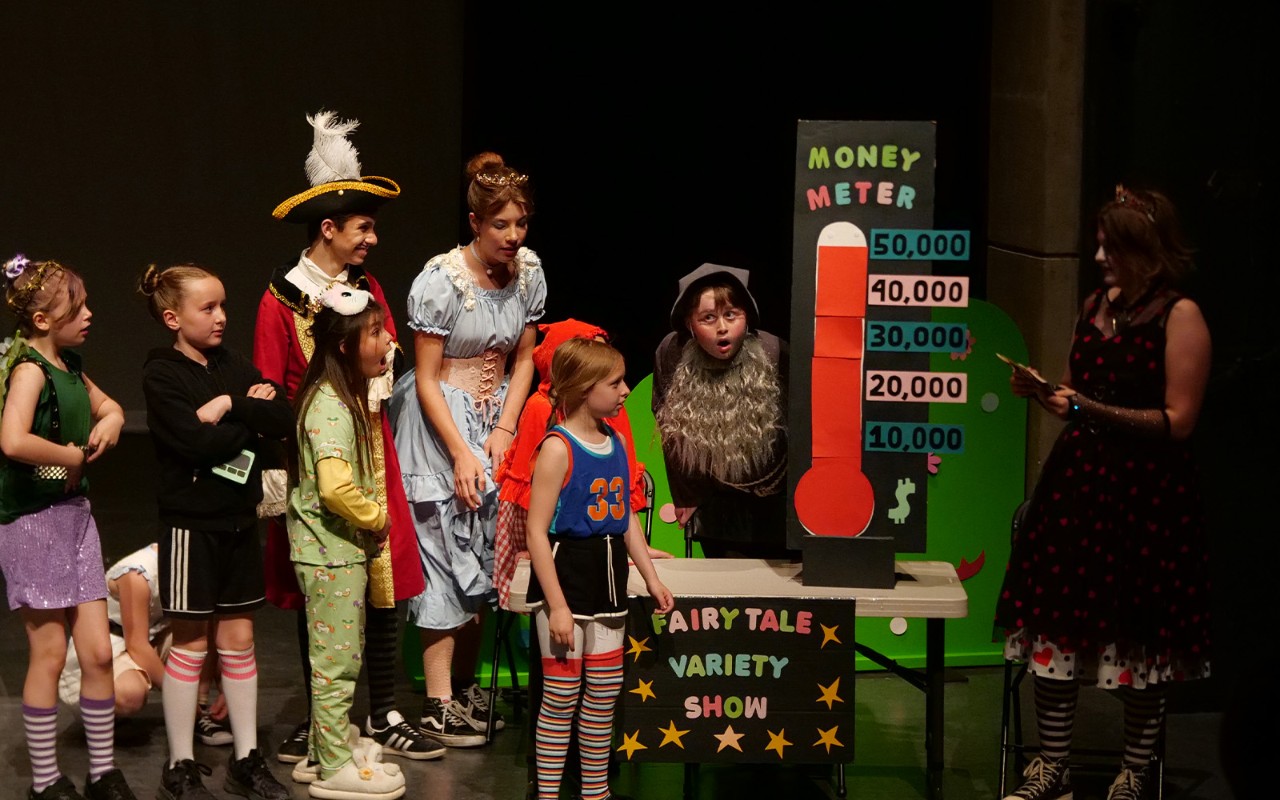Article, Environmental Justice, Arts & Culture, Urban Issues, Social Justice, Community
Re-envisioning Climate Futures through The Climate Imaginary Podcast Series
As we navigate our future within the ongoing climate emergency, we seek different frameworks to help guide our learning and our actions. In Below the Radar’s The Climate Imaginary series we touched on disinformation, links between the arts and climate activism, and the challenges in making real environmental change.
To visualise a better future, The Climate Imaginary invited guests from across artistic and academic disciplines to discuss ways of working in solidarity amidst the climate crisis. We featured conversations that ranged from the unique power of creative works to mobilise people, to the importance of collaboration and interdependence across fields. Check out the full episodes below featuring Stephen Collis, Kendra Fanconi, Charles J. Henry, Andréanne Doyon, Geoff Dembicki, Julian Brave Noisecat, and Karenna Gore.
Beneath the Poetry, the Barricade—with Stephen Collis
We kicked off the series with a conversation on the relationship between art and environmental activism with writer and SFU English professor Stephen Collis. Our host Am Johal and Stephen also discussed the collaborative artistic efforts Stephen is involved with, and Stephen reads several of his poems exploring the fight against pipelines and building solidarity in environmental movements.
“At some point you gotta put the writing down and stack chairs or, you know, help carry things or be a body in the street and hold a sign or help elders onto a stage and off again, or whatever the work might be, that the writing doesn't seem to have any kind of... it's not got a privileged position. In that kind of work. You're... as a writer in any kind of social movement or social justice phenomenon, a writer has no more important a role than the person who's really good at making stew and has the wherewithal to produce a massive pot of stew and go 'look, everybody, I made this vegan stew for the for the meeting, we're having' like, 'great, I wrote a poem'. Neither is really that much more important than the other as I saw it.” - Stephen Collis
This episode is a special live event recording from SFU School for the Contemporary Art’s 2022 Re-orientation day on September 8th. The re-orientation day opened the school semester with events, discussions, and performances centred around the theme of climate change and contemporary art.
The Art Shaped Hole in the Climate Crisis—with Kendra Fanconi
We continued the conversation on art’s role in the climate crisis with guest Kendra Fanconi, the Artistic Director of The Only Animal, a Vancouver-based theatre company that creates immersive work arising from a deep engagement with place. Steve Tornes and Alex K. Masse sat down to talk with Kendra to discuss her company’s work in greening the theatre sector, creating a cohort of 100 climate-focused artists, as well as the unique role art has in combating climate grief and presenting creative solutions.
“Climate despair experienced alone, climate anxiety experienced alone, is very unlikely to move someone to action. People can almost become paralyzed by that anxiety and grief. So, I see that work of the heart and that work that artists can do is the thing which brings us together in community, activates our feeling system, and in there is the potential to mobilise and make change. And that change almost entirely comes from working with others in the kind of collective movements that are successful in shifting things at the climate level.” - Kendra Fanconi
The role of the artist in forging engaged and collaborative ways through the climate crisis is essential for our imaginary powers in seeing solutions.
Preserving Cultural Heritage—with Charles J. Henry
We then pivoted from the role that artmakers and writers play in our climate imaginations to how we can best preserve cultural heritage against the encroaching effects of the climate crisis. Am spoke to Charles J. Henry, president of the Council on Library and Information Resources (CLIR), about the importance of cultural artefacts and how they can be kept accessible for the future.
“When you look at the reports coming out of the interagency panels, and other scientific organizations, and you look at the remarkable and consistent research that's being done about climate change, and how it's accelerating, almost every month, there's new indications of massive ice sheets melting. And there was an article today about the Barents Sea, which is melting, and the consequences of that for the circulation of cold and warm water around the northern hemisphere. And you can just pile on literally thousands of articles and investigations. It's very clear that if something, if we cannot muster a response, that we will lose this planet. I think that is not controversial at this point. I think we will lose not Earth, Earth will stay but we will lose our habitat, and perhaps irrevocably, and that would be completely devastating for any kind of cultural legacy that we have created over the last hundreds of thousands of years.” - Charles J. Henry
Am and Charles discuss the work the CLIR is doing in ensuring cultural heritage artefacts are safe and accessible within the digital space through both archiving and collaborating with universities and communities at risk of climate disasters.
Planning for Community Resilience—with Andréanne Doyon
Alongside the efforts of preserving our cultural heritage through various archiving means, we must also look towards planning for community resilience and building strong infrastructures and responses amidst the climate crisis. To look at this topic, Am talked to Dr. Andréanne Doyon, Assistant Professor at the School of Resource and Environmental Management at Simon Fraser University.
“So thinking much more about how do we incorporate different people's worldviews and knowledges and experiences more directly into the way that we think about this. So in a place like Vancouver, it being really important to not only recognize that we live on unceded traditional land, but to think about what would vocal responses be to coastal adaptation? What are local ways of living with water? And how might we think about that? And for other places in the world, it would be other ways of knowing and being that would be really important to incorporate” - Andréanne Doyon
They talk about sustainability versus resilience, and also discuss the role of researchers and planners in the climate emergency— looking at alternate methods of sharing research and how to engage with a community’s specific knowledge and needs.
The Petroleum Papers—with Geoff Dembicki
Moving into exploring the voices behind the doom-based narratives of the climate crisis, Am Johal is joined by Geoff Dembicki, an author and journalist originally from Alberta, Canada. Together, they discuss Geoff’s latest book, The Petroleum Papers, an investigation on climate disinformation campaigns conducted by Big Oil companies.
“The big oil coverup of climate science is potentially one of the most consequential disinformation campaigns in history because it stole from us the opportunity to get the climate emergency under control. And that’s going to affect the habitability of this planet for thousands of years.” - Geoff Dembicki
Am and Geoff also talk about the shift of climate denial from traditional news outlets to digital channels, as well as the work of youth activists to combat these narratives. The ongoing work of combating climate change denial is essential in broadening our collective imaginations.
We Survived the Night—with Julian Brave Noisecat
Focusing on the importance of learning from past social movements and Indigenous ways of knowing, in this episode, Am talks with writer and activist Julian Brave Noisecat. Julian talks about coming of age in a time of several prominent Indigenous movements that combined political and environmental activism, as well as working in policy making for projects such as the Green New Deal. Together, they discuss where environmental movements fail to capture the imagination of the broader public and talk about Julian’s upcoming book.
“I sort of frame this idea in conversation with the trickster figure or the transformer figure that is really central to the creation of the world in the last epoch of immense geological and climatic change, which was the end of the last ice age, that the Trickster in transformer stories generally come from. And what I argue is actually related to climate change. And that's that in this moment of, you know, tumultuous transformation in the natural world and an era where we're going to have to also transform our societies to adapt to and mitigate that warming, the trickster and transformer figures may very well be returning if we if we look at these stories in the way that our ancestors may have.” - Julian Brave NoiseCat
Julian’s braiding together of personal memoir, journalism, and storytelling speaks to the imaginative possibilities in working through the climate crisis.
Earth Ethics, Spirituality, and Social Justice—with Karenna Gore
In the final episode of the series, we turn towards spirituality and interfaith studies. Am is joined by Karenna Gore, founder and executive director of the Center for Earth Ethics at Union Theological Seminary, and author of the book, “Lighting the Way.” Together, they discuss the collective problem of climate change and the role for interfaith dialogue in the environmental movement.
“And many people have articulated this before me, that there are different levels. There's individual, family, community, and on the civic level, there's also the local, state, national, global. And this is one reason why this is a challenging thing. In terms of ethics, I would just add that in the field of ethics, there's always this idea of what's the circle of moral concern, or at least the way I was taught. And the circle of moral concern is drawn differently depending on what kind of ethics you're doing. So you know, if you have workplace ethics, you have different obligations to people that you share a workplace with, a different set of expectations than those that you don't. And, in our case, you know, when you're talking about ecology, we're starting to realize that the way that people have drawn the circle of moral concern, I mean, this has to do with how ecology and economy relate. And I know you've written about and know that the root word of "oikos" is the home, which is the same, but people have, when they talk about the economy, you know, often that is such a small circle that's been drawn. And so widening the circle of moral concern in how we do this work, it has to involve how we talk about the economy, which is, of course, you know, related to ecology. - Karenna Gore
Whilst this series has ended, we hope these conversations have enlivened your own climate imaginations and sparked new growth and ideas. To listen to these episodes, read the episode transcripts, or gain access to resources from each episode, please click the link below.
Latest/Related Updates
-
December 18, 2024

December 18, 2024
Between October 30th to November 10th this year, the 21st annual Heart of the City festival animated the Downtown Eastside with over a hundred community-oriented events under the theme Threads of Connection.
-
September 25, 2024

September 25, 2024
The release of States of Injury — with Wendy Brown marks Below the Radar’s 250th episode—a major milestone since the podcast’s inception in 2018.
-
July 10, 2024

July 10, 2024
On June 22, the cast and crew of Project Limelight’s production of East Side Story were greeted with applause as a full house welcomed the young performers back to the Fei and Milton Wong Experimental Theatre stage.
-
January 10, 2024

January 10, 2024
Our Below the Radar podcast mini-series See How We Run! looked at local arts collectives and organizations, highlighting conversations about creation, spacemaking, accessibility, and self-determination within the framework of Vancouver’s cityscape.
-
August 15, 2023

August 15, 2023
With details of our 5-year anniversary celebration event to come, let’s take a sneak peek of the upcoming season.



